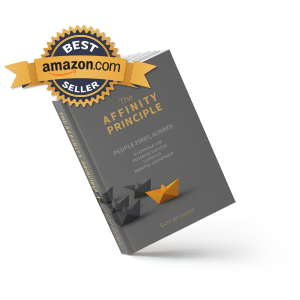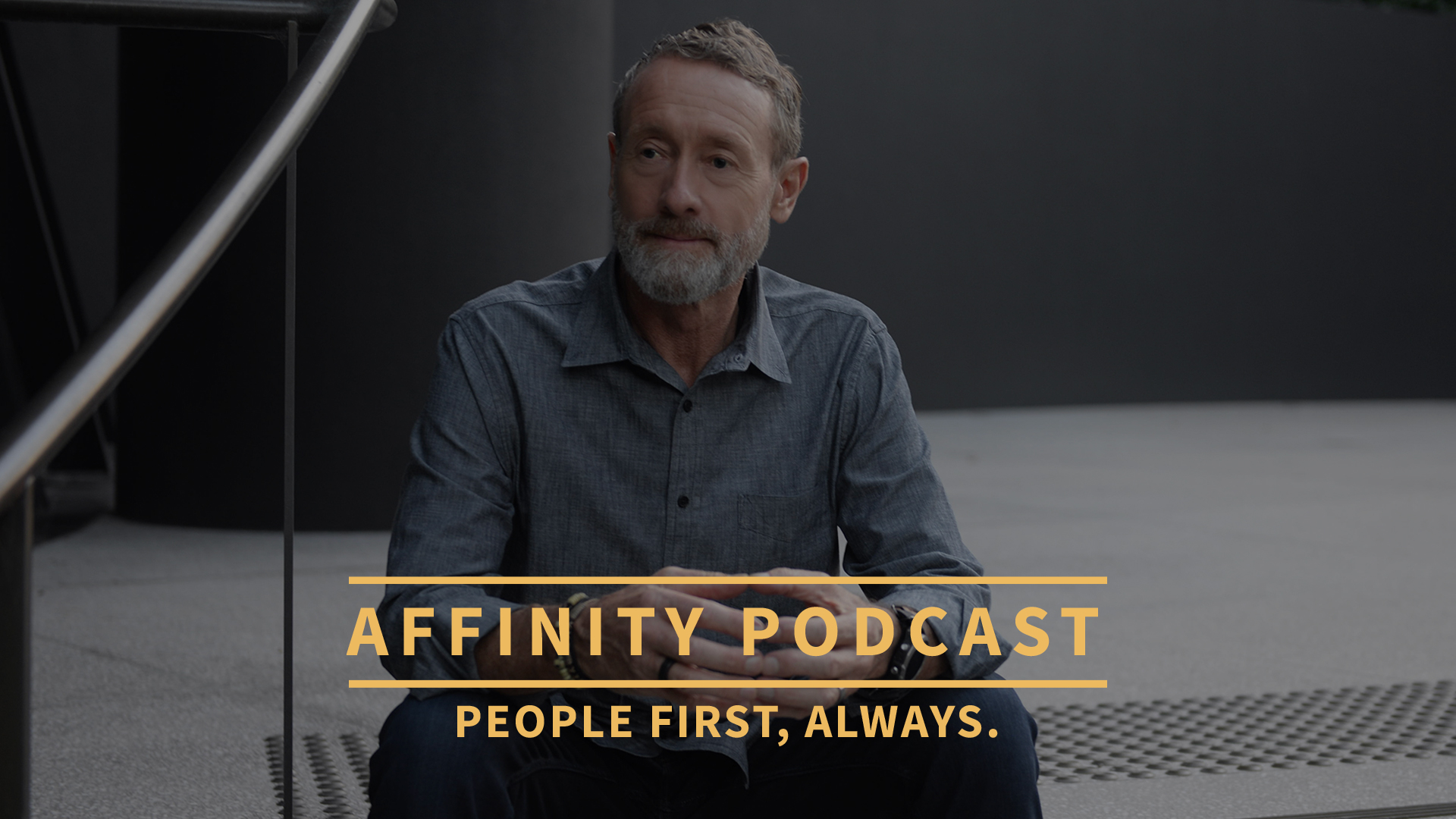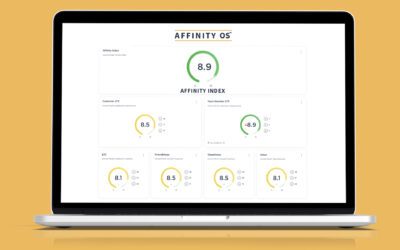Rediscovering Free Will: The Power of Autonomy and Self-Determination


Grant Ian Gamble is a best-selling mindful leadership author and speaker. He has over 30 years of experience in leading teams to create innovative customer experiences, building engaged workforces, and developing leaders who prioritize mindfulness in their approach.
In the complex tapestry of human existence, the concept of free will holds a prominent position. Victor Frankl, a renowned psychiatrist and Holocaust survivor, and Nir Eyal, a prominent author and behavioral designer, shed light on the significance of free will in our lives. Feeling autonomous and self-determined, that we have the power to exercise free will, is a fundamental psychological need that impacts our mental health. While it is easy to feel swept along by the current of life, believing we lack control over our outcomes, we must recognize our inherent ability to direct and redirect our path. Although we cannot change past decisions, the power to shape our current decisions and determine our direction lies within our grasp.
The Crucial Role of Free Will in Mental Health
Free will is not merely an abstract philosophical concept; it plays a vital role in our mental well-being. As Frankl emphasized in his seminal work, “Man’s Search for Meaning,” the freedom to choose our attitude towards any given situation empowers us to find meaning even in the face of unimaginable adversity. When we believe that we have agency over our decisions and actions, we gain a sense of control over our lives, enhancing our self-esteem and overall psychological well-being.
Autonomy and Self-Determination: Basic Psychological Needs
According to self-determination theory, developed by psychologists Edward Deci and Richard Ryan, autonomy and self-determination are fundamental psychological needs that contribute to our overall sense of well-being. When we experience autonomy, we feel a sense of ownership and control over our actions and choices. This feeling of empowerment boosts our motivation, leading to greater satisfaction and engagement with life.
Redirecting Our Path: The Power of Future Decisions
While we cannot alter our past decisions, we possess the remarkable ability to shape our present reality. Acknowledging that our actions today influence the outcomes of tomorrow is the first step towards exercising our free will. By accepting responsibility for our choices, we unlock the potential to create a life aligned with our values and aspirations. Nir Eyal, in his work on behavioral design and habit formation, emphasizes the importance of consciously directing our decisions to shape our desired outcomes. By understanding the triggers and motivations that influence our behavior, we can consciously design our environment to support our goals and aspirations. This proactive approach allows us to break free from the shackles of passivity and assert our free will in carving our own destiny.
Between stimulus and response there is a space. In that space is our power to choose our response. In our response lies our growth and our freedom.
Embracing Free Will in Practice
To embrace free will and cultivate a sense of autonomy and self-determination, we can adopt several practical strategies:
- Mindful Decision-Making: Practicing mindfulness enables us to pause, reflect, and make conscious choices rather than succumbing to impulsive reactions. By taking a step back, we can evaluate the available options and consider the long-term consequences of our decisions.
- Goal Setting: Setting clear, meaningful goals provides a sense of purpose and direction. When we establish specific, achievable objectives, we become more intentional in our actions and increase our chances of success.
- Taking Ownership: Accepting responsibility for our actions empowers us to learn from our mistakes and make necessary adjustments. By recognizing that we have the power to influence our circumstances, we regain control over our lives.
- Surrounding Ourselves with Support: Building a supportive network of individuals who encourage and challenge us positively can provide the necessary motivation and accountability to stay on track with our goals.
Feeling autonomous and self-determined is a fundamental psychological need that profoundly impacts our mental health and overall well-being. Victor Frankl and Nir Eyal’s insights remind us that despite the challenges and constraints we face, we possess the innate capacity to exercise free will and shape our destiny. By embracing our ability to choose a different path, we allow ourselves to explore a world of other possibilities.
The essence of leadership is in the decisions you make. We are free to make any decisions we want, but we are not free from the consequences of those decisions. Choose wisely.
AFFINITY Podcast Episode 14 | Andrew Nelson, Co-Founder, AFFINITY OS. Measuring NPS and eNPS Leads to AFFINITY and Long-Term Financial Results

Put PEOPLE FIRST, ALWAYS and watch your business flourish.
Dive deep into the latest trends in customer experience and team engagement, mindful leadership and management. Discover practical tools and strategies that you can use to build a people-centric culture, the foundation for sustainable long-term business growth and success.
Led by mindful leadership expert, Grant Ian Gamble, a best-selling author and true visionary with over 30 years of experience in leading teams to create innovative customer experiences, building engaged, inspired and fulfilled workforces, and developing leaders who prioritize genuine connection in their approach.
The guiding principle behind all of Grant’s work is PEOPLE FIRST, ALWAYS.
More Articles:
Embracing Abundance Mentality: A Mindset for Limitless Possibilities
In a world often viewed through the lens of scarcity, embracing an abundance mentality can be transformative, especially for leaders and entrepreneurs in the fast-paced fitness and wellness industry. This mindset shift, from viewing resources as limited to seeing the world as full of possibilities, is more than just positive thinking; it’s a strategic approach that fosters growth, collaboration, and innovation.
8 Reasons to Engage with AFFINITY OS™
In the rapidly evolving business landscape, CEOs and business leaders are continually seeking innovative solutions to stay ahead of the curve. AI-driven AFFINITY OS™ offers a suite of tools designed to enhance team member engagement and customer experience, and provide actionable insights in real time. Here are eight compelling reasons why engaging with AFFINITY OS can transform your business approach, offering a blend of advanced technology and insightful analytics to drive success.
Leveraging NPS® and eNPS® for Organizational Success: Insights and Real-World Impact
Top companies leverage Net Promoter Score (NPS) and Employee Net Promoter Score (eNPS) to monitor and enhance customer and Team Member satisfaction, respectively, leading to various organizational benefits. Here are the key reasons and ways these metrics are used, supported by examples and insights:
Fill out the form below and receive a PDF download of "6 Key Strategies to Engage Untapped Fitness and Wellness Market Segments"
Let's Connect!
CUSTOMER EXPERIENCE, TEAM ENGAGEMENT & WORKPLACE WELL-BEING: AFFINITY OS™ | WELLNESS INTEGRATION | MINDFUL LEADERSHIP: "THE AFFINITY PRINCIPLE"
0475 866 592

The Affinity Principle™ by Grant Gamble presents a formula for business success through a people-centric, mindful leadership approach.
PEOPLE FIRST, ALWAYS.








